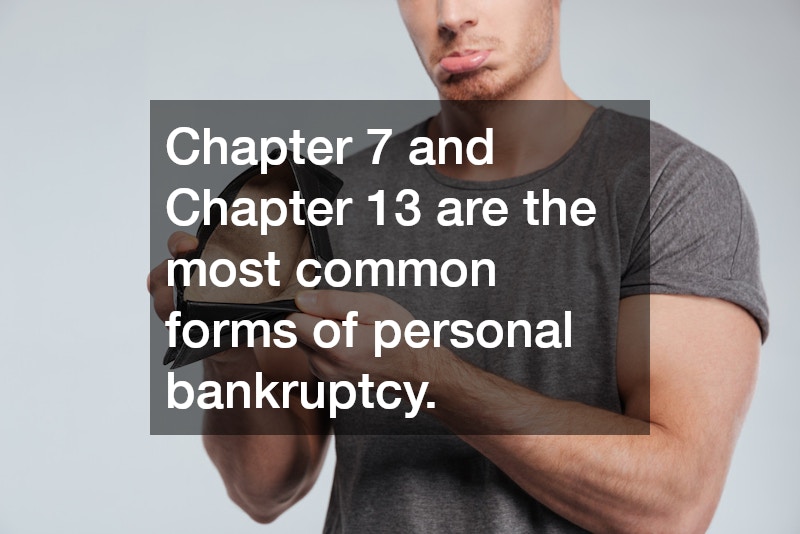Filing for bankruptcy is a major financial decision that can have lasting consequences on your credit, assets, and financial future. It’s not something to enter into lightly. If you’re considering bankruptcy, the first step is to schedule a consultation with a bankruptcy law firm. This meeting gives you a chance to understand your options, evaluate the firm’s qualifications, and determine whether bankruptcy is the best course of action for your unique situation.
However, many people feel overwhelmed or unsure of what to ask during this initial consultation. To help you make the most of your time and gain the clarity you need, here are key questions you should consider asking during your consultation with a bankruptcy law firm.
1. Do I Qualify for Bankruptcy?
Not everyone is eligible for all types of bankruptcy. During your consultation, ask the attorney to assess whether you qualify for Chapter 7, Chapter 13, or another form of bankruptcy. They may review your income, assets, debts, and financial history to help determine what options are available.
Understanding what you qualify for helps set the direction of your case and informs your decision on how to proceed.
2. Which Type of Bankruptcy Is Right for Me?
Chapter 7 and Chapter 13 are the most common forms of personal bankruptcy. Chapter 7 involves liquidating non-exempt assets to pay off debt, while Chapter 13 allows you to restructure your debt into a manageable payment plan over three to five years.
A qualified bankruptcy law firm should clearly explain the pros and cons of each option in your specific context. For example, if you’re trying to keep your home, a Chapter 13 might be more appropriate. Asking this question will help you understand the practical implications of each path.
3. What Will Bankruptcy Do to My Credit?
While bankruptcy can offer a fresh start, it also impacts your credit. Chapter 7 typically remains on your credit report for 10 years, while Chapter 13 stays for 7 years.
Ask the law firm how filing will affect your ability to obtain loans, buy a home, or get a job in the future. A good attorney will also provide guidance on rebuilding your credit after bankruptcy.
4. What Happens to My Assets?
One of the biggest concerns people have when considering bankruptcy is what will happen to their property—homes, vehicles, savings, and personal possessions.
Ask the bankruptcy law firm about the exemptions that apply in your state and what assets you’re likely to keep or lose. Understanding the difference between exempt and non-exempt assets is crucial in making an informed decision.
5. How Much Will It Cost?
Bankruptcy isn’t free. You’ll need to pay court filing fees and, of course, attorney fees. Be sure to ask the firm for a detailed breakdown of the costs involved. Find out if they offer payment plans or flat-rate pricing.
While it may be tempting to go with the cheapest option, remember that experience and quality legal advice often come at a reasonable cost. The cheapest attorney might not always provide the best outcome.
6. How Experienced Are You With Bankruptcy Cases?
The success of your case can often hinge on the experience and knowledge of your attorney. Ask how long the bankruptcy law firm has been practicing bankruptcy law, how many cases they’ve handled, and whether they have experience with situations similar to yours.
A seasoned firm will be able to navigate complications such as wage garnishments, foreclosure proceedings, or business-related debt.
7. Will I Work Directly With an Attorney?
Some firms assign cases to paralegals or junior staff members after the initial consultation. It’s important to know who will be managing your case and how you will communicate with them.
Ask if you’ll have access to your attorney throughout the process and how often you can expect updates.
8. What Should I Do Before Filing?
Your actions before filing for bankruptcy can impact the outcome of your case. For instance, transferring assets, paying back certain creditors, or continuing to use credit cards can raise red flags.
A knowledgeable bankruptcy law firm will advise you on what to avoid and what steps to take to prepare for filing, ensuring your case proceeds smoothly and legally.
9. What Will the Process Look Like From Start to Finish?
Ask for a step-by-step overview of what to expect during the bankruptcy process. Knowing how long it will take, what documentation is needed, and when court appearances may occur can help reduce anxiety and keep you on track.
This question also allows you to evaluate how organized and communicative the law firm is.
10. What Are My Alternatives to Bankruptcy?
Finally, a trustworthy bankruptcy law firm will be honest about whether bankruptcy is your best option. Ask if there are alternatives such as debt consolidation, negotiation with creditors, or credit counseling.
If the firm immediately pushes you to file without exploring other routes, it may be a red flag.
Choosing to work with a bankruptcy law firm is a significant step in reclaiming your financial stability. By coming prepared with the right questions, you can ensure you’re making an informed choice and working with professionals who have your best interests at heart.
Remember, the consultation is not just about them evaluating your case—it’s also your opportunity to evaluate them. Take your time, ask the hard questions, and make sure the firm you choose is the right fit for you.
